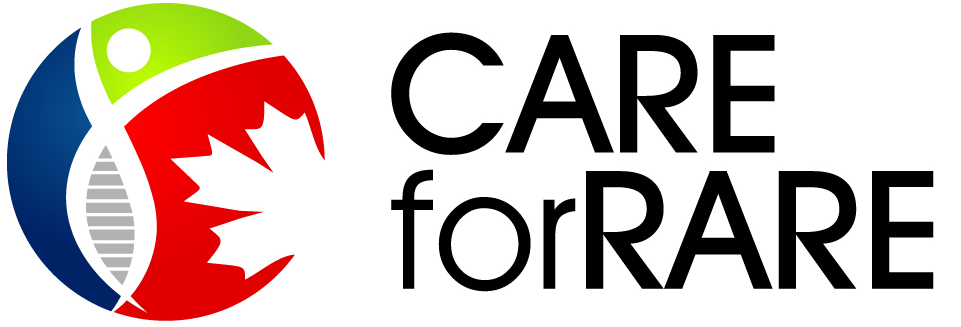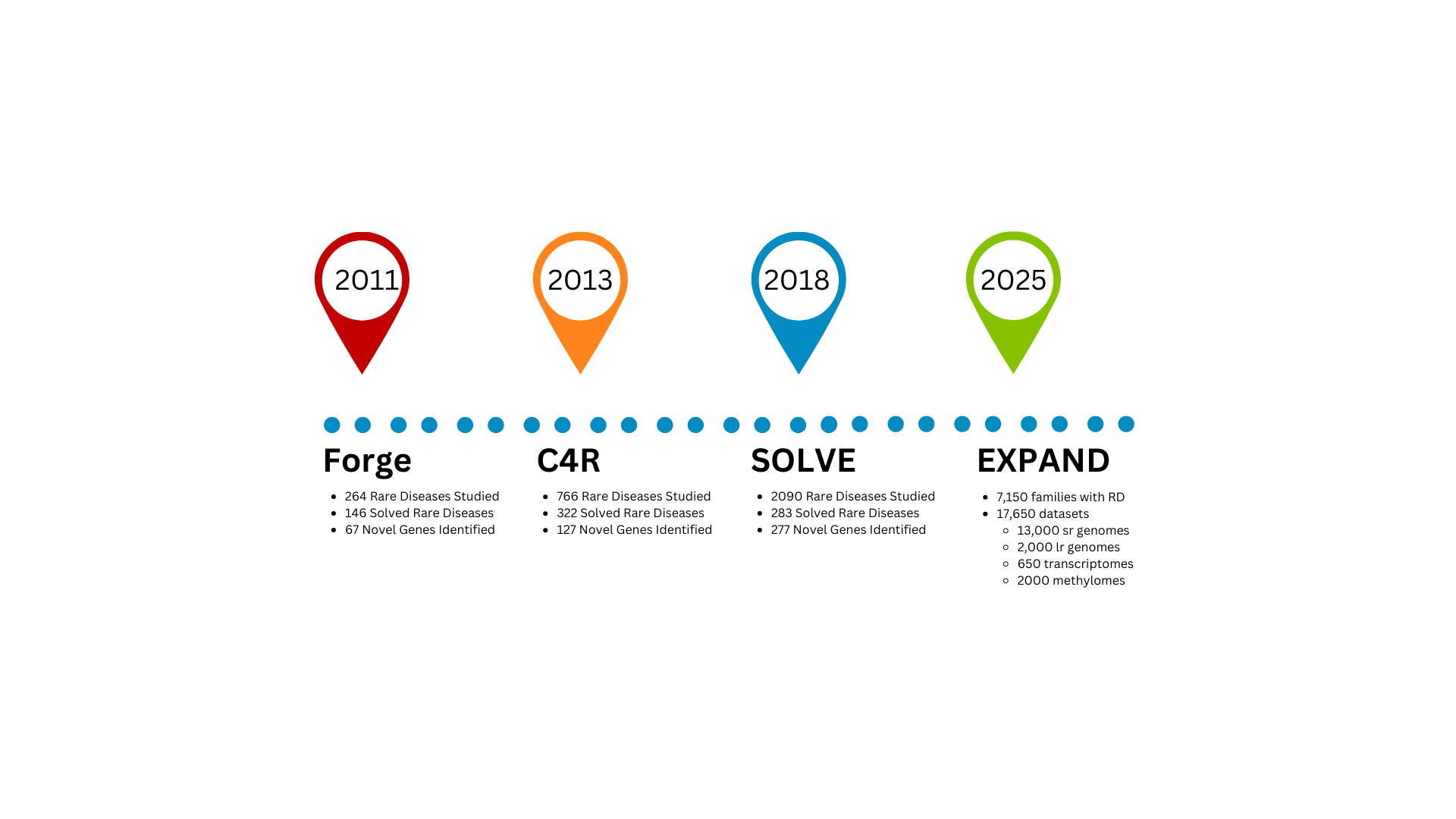History
2011 to 2013 - FORGE
Care4Rare Canada was formed under the project name FORGE (Finding of Rare Disease Genes in Canada) in 2011. It was jointly funded by Genome Canada and the Canadian Institutes of Health Research.
FORGE’s vision was to create a Canadian network of doctors and scientists to use Next Generation Sequencing to identify as many rare disease-causing genes as possible, to help give undiagnosed rare disease patients answers.
The project was highly successful, and studied 264 rare diseases, solved 146 rare diseases, and identified 67 novel genes.
2013 to 2018 - CARE4RARE
In 2013, Care4Rare (C4R) was announced as a follow up project to FORGE. Care4Rare would build upon FORGE’s infrastructure and discoveries. It would also continue to identify novel genes and disorders, to help translate new technologies such as genome-wide sequencing into clinical care, and to reduce the burden of the diagnostic odyssey.
Care4Rare studied 766 rare diseases, solved 322 rare diseases, and identified 127 novel genes.
2018 to 2024 - CARE4RARE-SOLVE and genomics4rd
200 physicians and 100 scientists work together to advance rare disease research through the program’s newest iteration as Care4Rare SOLVE (C4R-SOLVE).
C4R-SOLVE expands on the work of FORGE and C4R and aims to optimize the delivery of clinical genome-wide sequencing in provincial health care systems, while using multi-omic approaches, global data-sharing and new bioinformatics to find diagnoses for the hardest to diagnose patients.
The SOLVE program also developed Genomics4RD which is the first pan-Canadian rare disease data repository and analysis platform. Genomics4RD facilitates precision medicine, harmonizes data collection and fosters data sharing and matchmaking on an international scale.
2025 to present - CARE4RARE-EXPAND
Building on its previous projects, the Care4Rare (C4R) consortium launched its latest initiative, C4R-EXPAND, to harness cutting-edge genetic technologies to transform the diagnostic landscape.
As part of Genome Canada’s Canadian Precision Health Initiative, this four-year pan-Canadian project will generate and share 17,650 diverse rare disease datasets—including short-read genome, long-read genome, transcriptome, and methylome data— aiming to provide new genetic diagnoses for 1000s of families.
With collaboration from 24 sites across the country, C4R-EXPAND will enhance diagnostic accuracy, drive technological innovation, and improve equitable access to genomic medicine. By contributing an unprecedented, diverse dataset, this initiative will advance Canada’s leadership in precision health and bring long-awaited answers to families living with rare disease.




